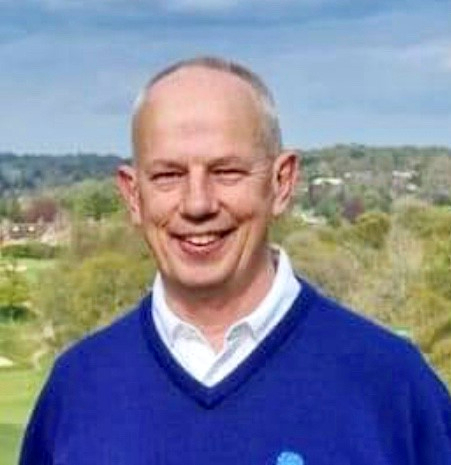To mark OmbudsDay, we’ve caught up with ombudsman Roy Milne to find out about his career background and the importance of his role for consumers and businesses.
 After graduating with a degree in economics, Roy embarked on a career in financial services. After a number of different roles, he settled on a career in complaints handling, investigating disputes about pensions and investments.
After graduating with a degree in economics, Roy embarked on a career in financial services. After a number of different roles, he settled on a career in complaints handling, investigating disputes about pensions and investments.
Roy went on to work at the Financial Ombudsman Service (FOS) for over twenty years. During this time, he issued many decisions involving high value and complex pensions and investment complaints.
“The main focus for me is to be thorough at all times, and to fully understand the perspectives of both sides”
TMO: You graduated with a degree in economics from Coventry University. Do you still follow the news closely to keep up to date with the latest economic developments and government policies?
RM: I try to keep up with what’s making the headlines, including economic policies. It is interesting to try to understand how events made at a government level affect the economy and the UK population as a whole.
TMO: How does your work differ from what your previous work at the Financial Ombudsman Service (FOS)?
RM: The complaint handling side is very similar. Essentially, it’s about problem solving. To resolve a complaint, I need to understand the problem, the relevant facts and arguments, and apply any relevant the law and legislation, such as the Consumer Rights Act 2015 or Distance Sales Regulations.
The subject matter is very different in the automotive sector, but pensions and cars have something in common in the fact that they are quite technical. I enjoy trying to understand how they work, to then adopt the most effective approach to resolve the problem and make my decision.
TMO: How do you approach each final decision so as to ensure that you have taken into account all the evidence, including the outcome made previously by the adjudicator?
RM: I read the complaint and the evidence submitted by the consumer and the response from the business, together with the documentation submitted by both parties. All the time, I am trying to understand what has happened and what I think about the evidence and arguments.
Next, I will then read the adjudicator’s conclusions and the responses to the adjudicator from the consumer and business. If I need any further information to allow me to reach a final decision, I will request it as this point. The main focus for me is to be thorough at all times, and to fully understand the perspectives of both sides.
TMO: Are there occasions where a consumer or a business will disagree with your final decision?
RM: Yes, this can of course happen, but I try to set out the evidence in a clear and logical way, and explain why and how I have reached my decision. Naturally, the losing party does not always accept the decision – it’s human nature!
TMO: Are you able to come to a different conclusion to the adjudication outcome if more evidence comes to light, beyond what has been provided previously?
RM: Yes, this can happen, although our rules do allow us to set deadlines for evidence to be sent to us by certain dates. Therefore, I could exclude evidence that is provided too late, but my best tip is for both parties to set out their arguments, and send the evidence as soon as possible.
TMO: Is it satisfying when you come to a final decision that both the consumer and business agrees with, and that a good relationship has ultimately been maintained between both parties?
RM: By the time a complaint reaches me at the final stage of our process, both parties have invested time and effort into dealing with the complaint. This can be an emotional time for all involved. It is of course satisfying when a dispute can be resolved with agreement from both parties.
TMO: If you hadn’t have chosen to work for an Ombudsman, what other profession would you have opted for?
RM: I think I would have been a fireman, following in my father’s footsteps!
TMO: What are your interests and hobbies outside of the working day?
RM: I can often be found enjoying a good walk! I also play golf and like watching Rugby Union when I can.
TMO: Do you like to travel (when there are no restrictions!), and what are some of the most memorable places you have visited to date?
RM: I don’t really like travelling, but love to visit other places – it’s the getting there that I find tedious! The most memorable places I have visited are Australia in 2001 – following the British & Irish Lions around the country, and South Africa, where I was on honeymoon – I went to Victoria Falls before going on safari, which were both incredible experiences.
Interview conducted in October 2022.
Read our Q&A with our ombudsman Alex Barnes here.